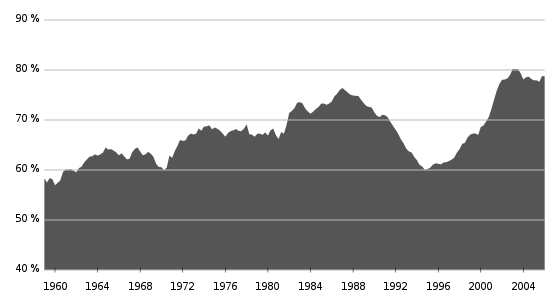If you assume a given budget at given time, an increase in the price of good A indeed implies there's less money available to be spend on other goods if the same amount of good A is bought. That means the prices of others goods will fall. This kind of equation has been an introduction to every economic course I've known.
Only the narrowest definition of money supply solely includes physical money. More popular definitions such as M2 also including current accounts, savings accounts, etc. When economist use the expression "printing money" it's rarely meant to be taken literally.
Originally posted by KrazyHorse
Hell, even if there was no cash in existence we could still have monetary economic activity.

The government doesn't have to print any money at all for transactions to be completed. In fact, cash transactions account for only a small percentage of all economic activity. An increase in the money supply can be a cause of inflation, but is not the only one.
Hell, even if there was no cash in existence we could still have monetary economic activity.

The government doesn't have to print any money at all for transactions to be completed. In fact, cash transactions account for only a small percentage of all economic activity. An increase in the money supply can be a cause of inflation, but is not the only one.



Comment